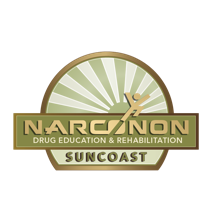Should We Stop Using the Word “Addict?”

Stigmas and judgments are often placed on a person in a specific condition. For example, those with substance abuse disorders are referred to as addicts. Those addicts wonder when mainstream media and society will stop referring to them as “addicts,” since the word carries a certain dishonorable connotation. Addicts have long sought a more respectful way to be identified by society in a more “person-first” perspective. So, should we stop referring to a person who is addicted to drugs as an “addict” and instead identify them as a “person with an addiction?”
Recently, the Associated Press published the AP Stylebook in which it asserts that people who use drugs shouldn’t be referred to as addicts anymore and society needs to stop using the word “addict” as a noun. Instead, the Stylebook is advocating for use of different language, like “she was addicted to heroin,” or “he was addicted…” What this does, according to the Associated Press, is separates the person from their condition.
The Associated Press is a highly influential publication and reports news to about 15,000 media outlets, institutions, and businesses. The AP Stylebook has helped set the standard for language usage in the media. If the AP’s more accurate terms for describing a person who is addicted to drugs is picked up by other leading organizations, it could help in the fight against the drug epidemic by effectively removing the negative ideas and biases regarding addiction. The Stylebook is also urging the media to stop using the words “addiction” and “dependence” synonymously, since addiction and dependence are two different conditions.
Drug addiction is characterized by the compulsive use of drugs despite the negative or adverse consequences received as a result of doing so. Basically, an example of addiction would be a person who uses heroin over and over again, doesn’t have the ability to stop on their own, and continues to get high regardless of the fact that using heroin caused them to lose their job, lose their family, and become homeless. With addiction, a person usually cannot handle their intense desires or cravings for drugs without the right treatment.
Drug dependence is a different scenario. By dependence we mean that the physical body has become so accustomed to the presence of drug that it needs it to function properly. The body begins to create a tolerance to the drug and higher and higher doses are required. With dependence, there is no compulsive need to continuously use the drug once negative consequences are received, however, if the drug use is ceased, the person will experience physical withdrawal. Basically, addiction resides in and affects the mind while dependence is a purely physical phenomenon.
NPR has also urged its employees to stop using words like “addict” and other nouns that stigmatize a person with a substance abuse disorder. Mark Memmott, NPR’s Standards and Practices Editor wrote: “While we have not banned the words 'addict' or 'alcoholic' (there are very few words we come even close to banning), we do agree that it's better to use a person-first approach."

Perhaps, one day, we can end the negative stigma placed on addiction. Addiction is so widespread these days, almost anyone can be or become an addict. The upper class and the lower class both have the potential to become addicted. It could be seen as unfair for society to use certain language when describing those who abuse drugs which beat them down and just degrades them a little bit more. Labeling drug users as “addicts” has the potential to cause unfair prejudices against them. The word “addict,” for some people, depicts a slinky criminal, weaving his way through life, robbing, cheating, lying and scamming his way to his next hit. While those traits can be common in people with addictions, giving them this type of negative stereotype just puts them at an immediate disadvantage. Language evolves slowly and modernizing it might take a little while, but I think society can start reducing the negative meaning of the word “addict” and start humanizing those who abuse drugs. By making them “human” again, we can put forth more efforts to help save them from their dangerous lifestyle, while also starting to get a handle on this country’s drug problem.
